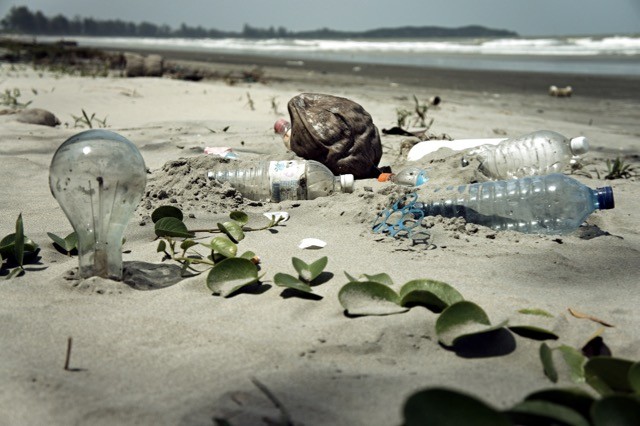At the moment, plastic accounts for about 10% of waste produced by humans, and 50% of the plastic we use we only use once. In the UK, most families will throw away 40kg of plastic in a year which could otherwise be recycled. In the US, the average person will throw away plastic weighing about 600 times their own body weight throughout their life.
In one day, I know I use a lot of plastic but I don't know how much. A lot of it probably has alternatives that won't eventually need to be dumped in a landfill. Even plastic that's recycled will, eventually, end up in a landfill. After it's been used a few time it can't be recycled anymore. So we're going to take a look at how much we personally use on an everyday basis.
We're keeping diaries of the plastic we use in our daily life, and looking for more sustainable (still practical) alternatives.
Over the next few months, some of us at CPN will be documenting each bit of plastic used in one day. We'll also start hunting for alternatives to plastic - and I already know that with some things, it's going to be a challenge.
If we're replacing something, we'll be looking into what's happening to it in its afterlife and make our best effort to recycle or find another practical alternative.
If we're looking for an alternative, we'll investigate the options and look at how sustainable they each are. For example, where does it come from, how long will it last, and what will happen when it's reached the end of its life? Cost is also a factor, because almost everyone is working to some kind of budget.
Our goal is not to immediately chuck out everything plastic and buy new eco-friendly alternatives. That's actually not a great approach. What's better is to use what we have until it needs replacing or we have a good way to dispose of it, and in the meantime look for better options for the planet and for our lifestyles. I'm hoping for the opportunity to get a little creative.
If you want to join us in the quest to reduce plastics in daily life, just send us your diary and we'll add it to our blog.
The best way to get in touch is to email us at This email address is being protected from spambots. You need JavaScript enabled to view it., or on Facebook or Twitter. Photograph what you use with a few brief sentences about how it's going, and let us know about any alternatives you're looking into.
We'll be kicking off soon, and I hope some of you will be joining us. It's a simple way to help reduce waste and live a cleaner life.
I already know I can flag some everyday things to avoid.
- Plastic water bottles. I'll confess that my current water bottle is made of plastic, but it's durable and BPA free (and came as a gift from a friend). I reuse this frequently, and I won't be replacing it just for the sake of it - but I'll also be trying to stay clear of buying water and juice in plastic bottles.
- Cosmetics with microbeads. No way. Those tiny bits of plastic are terrible, and just go straight down the drain where they soak up poisons and end up in animals and people.
- Disposable cutlery and quick food packaging. This might mean rethinking your purchase if you're heading to the supermarket to pick up your lunch. And it gets even more difficult if you look at how even bulk food you buy is packaged...
- Plastic bags. But this one is old news by now, I hope. Reusable bags made of material (like canvas) are easy to get, and there are plenty of fair trade and natural fibre options available. And, no matter how strangely the cashier looks at you, you can politely turn down a shop teller's automatic move to put your products in plastic bag.
- Tiny travel bottles of shampoo. And conditioner, moisturiser, etc - and because I'm doing a bit of travel at the moment this may be something I need to think about. These single-serve products are so easy to just pick up and throw away.
Top photo credit to epSos.de on a Creative Commons Attribution 2.0 license via Wikimedia.




 Scottish Charity: SCO46819
Scottish Charity: SCO46819